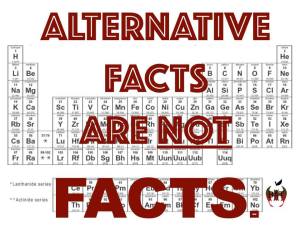
Welcome to 2019! In keeping with the tradition of a new year, I’m hoping you will join me in resolving to promote good gardening science among your friends, relatives, colleagues, and customers. One of the most important tools you’ll need is a collection of resources that are not only science-based, but are relevant to gardens and landscapes (not agricultural production). With that in mind, here’s my list of authors and institutions who are credible resources.
First off, of course, I’ll have to start with the Garden Professor faculty. While this blog is a great archive of information from all of us, some of us have also published books and articles, recorded podcasts, webinars, and DVDs.
Print and digital media – individual authors
Dr. Jeff Gillman has a nice list of books to consider, in addition to those by Joseph Tychonievich and one by Dr. Holly Scoggins. And I’ve got my collection of books and DVDs as well. Dr. Lee Reich, while not officially part of our GP faculty, has published more books for the home gardener than any of the rest of us.

These are popular publications rather than peer-reviewed journal articles. But the authors have solid credentials and years of experience in teaching and research. That makes them reliable sources of information, and while no one is infallible, these authors are active learners and educators. You can be sure that they present the information in their disciplines as accurately and objectively as possible.
Print and digital media – university Extension publications
Ideally, university Extension publications undergo stringent peer review and are updated regularly. In reality, not all Extension publications are equal in quality. I’m on the faculty at Washington State University and one of my jobs is to keep our Home Garden series of articles current (http://gardening.wsu.edu/). I can confidently say that the fact sheets and manuals on our site have been through peer review and are as accurate as possible. Some are getting near the end of their shelf life (five years at WSU) and need to be revised or removed.

Are there other universities that have peer-reviewed, current, and relevant Extension publications for gardens and landscapes? If so, please add them to the comments and I will check them out. (To save time and aggravation, please check these out yourself first. Don’t just list them and wait for me to go through them with a critical eye.)
Social media, including blogs and Facebook

I first got into social media with the construction of my Informed Gardener web page. The white papers, podcasts and other materials housed here are all science based, but they have not been through peer review. Many of them have been adapted into peer-reviewed Extension fact sheets but all of them represent a collection of relevant information that remains accurate despite being dated. Hey, there’s only so much I can do…

The Garden Professors blog was born in 2009, followed in 2011 with our Facebook page and discussion group. Both of these have the distinction of being the first (and possibly only?) exclusively science-based gardening groups on Facebook.


And yes, I’ve probably left someone or something out
By now you’re probably saying “What about Dr. X’s Facebook page or Professor Y’s blog?” This post is admittedly narrow, because I only know the people that I know. I’d like to expand the recommendations in this post to include other discipline experts who have information directly relevant to the mission of the Garden Professors. (This means we are NOT including information more relevant to farming or other types of agricultural production.)
So feel free to add your suggestions as comments, keeping in mind the criteria I mentioned above. Hopefully what we can create together is a really nice resource list for all us to use.
Thank you for all of your wonderful work! I’m still hoping you will tackle the question of rock dusts. There are some good YouTube videos by a home gardener who did trials and debunked some of the commercially available products, but I’m sure many gardeners still waste money on the.
Hi Pam –
I’ll add it to my list – maybe I can get to it this year. Thanks for reminding me.
For other extension services to reference, I recommend OSU’s PNW Plant Disease Handbook: https://pnwhandbooks.org/plantdisease.
OSU is also going through a more extensive process to create a single platform for all of its pest and landscape management info. It should eventually provide a great resource for PNW landscape folks. For now, the plant disease handbook is has the most functional interface and appears to be generally current on the science.
The University of Florida’s Landscape Plant’s website is also full of reliable science-based information, including some of the best resources for tree management: https://hort.ifas.ufl.edu/woody/index.shtml.
The PNW series is actually a three state publication: Oregon, Washington and Idaho. The review it goes through is much more extensive, as it has to get approval from reviewers from all three of those states. The caution with the PNW series is that most of the publications are for production agriculture – only a few are relevant to home gardens and landscapes.